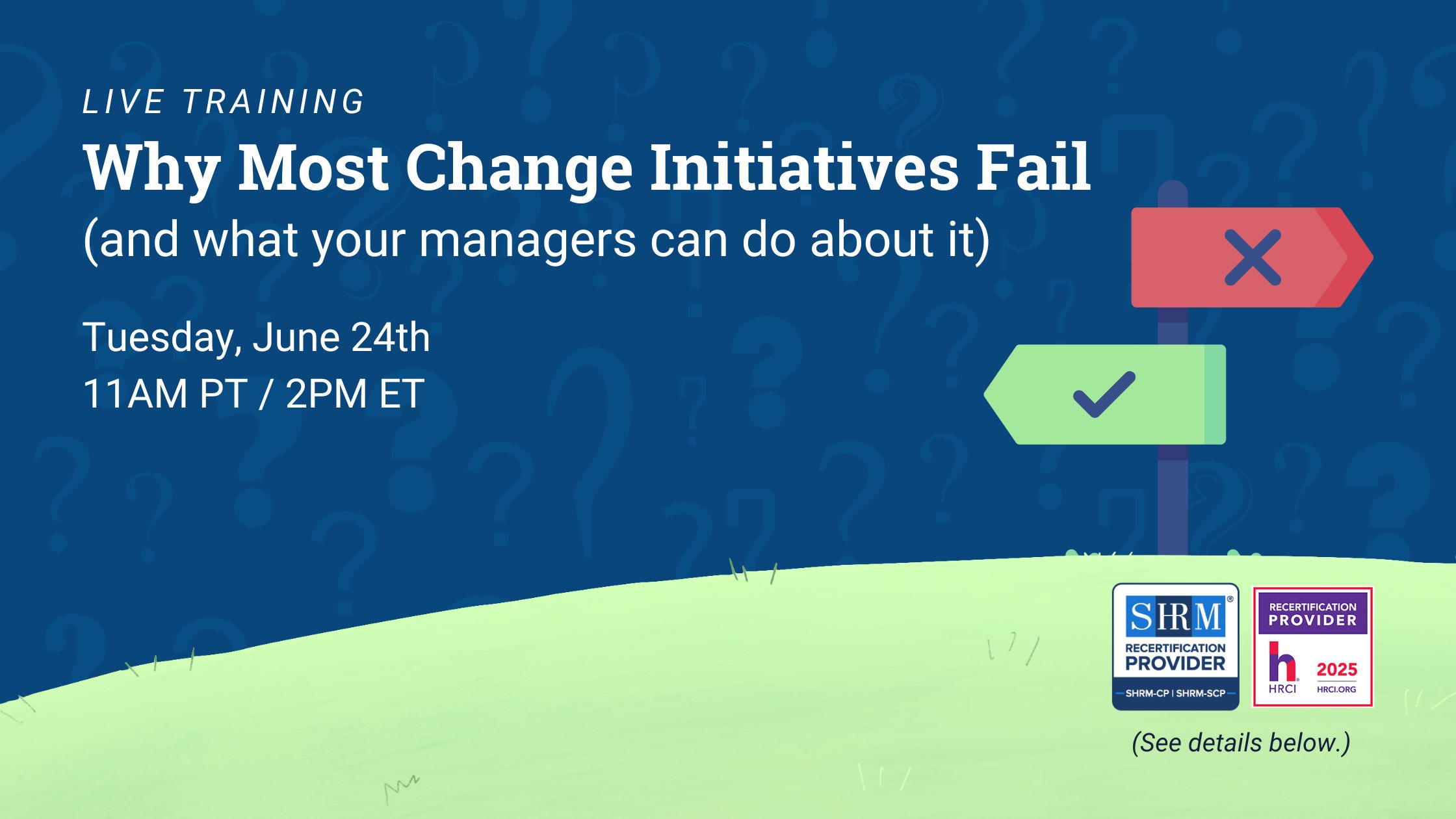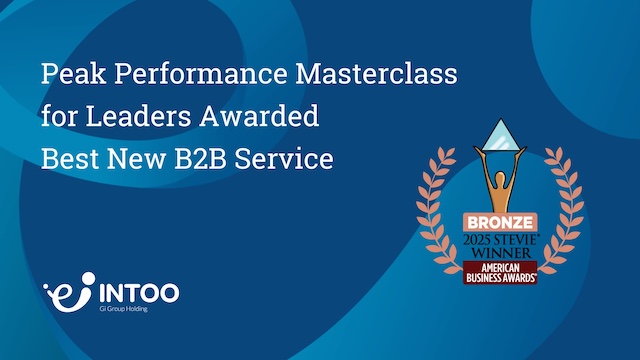Offering a career development program to employees can lead to increased motivation, productivity, and job satisfaction in the workplace. However, creating an effective plan is a challenging task for companies unfamiliar with promoting the growth of their staff.
The following guide will describe ten ways you can contribute to the professional advancement of your team members.
What Is Employee Career Development?
Employee career development is a structured and strategic process organizations undertake to help employees enhance their skills, knowledge, and experiences to achieve career goals. It is a comprehensive approach that includes coaching, training, mentoring, and opportunities for advancement within the company.
Employee career development begins with identifying an employee’s strengths, weaknesses, and aspirations, often through performance evaluations, assessments, and discussions. Once these factors are reviewed, a personalized development plan is created to guide the employee’s professional growth. This plan may involve training programs, workshops, job rotations, or higher-level responsibilities that align with the employee’s career objectives.
Career development is not limited to acquiring job-specific skills but also includes the development of soft skills, such as leadership, communication, and problem-solving abilities.
It is an ongoing commitment by both the employer and the employee to ensure that the individual’s career path aligns with their personal and professional aspirations while contributing to the organization’s success. Effective career development programs benefit both the employee and the business, creating a symbiotic relationship where personal growth and organizational success go hand-in-hand.
Why Is Employee Career Development Important?
Employee career development promotes individual well-being and professional growth while strengthening the organization’s performance, sustainability, and competitive edge.
For the employee, career development offers a sense of purpose, motivation, and personal growth. It allows the individual to acquire new skills, knowledge, and experiences, which can lead to higher job satisfaction and self-esteem. Setting and achieving career goals provides direction, helping employees stay engaged and committed to their work. Moreover, career development enhances job security and opportunities for advancement, reducing the fear of stagnation or job obsolescence.
For employers, investing in employee career development is equally beneficial. It fosters a more skilled and adaptable workforce, improving productivity, innovation, and competitiveness. When employees feel their growth is supported, they are more likely to stay with the company, reducing both turnover and the associated costs of recruitment and training. Moreover, a strong commitment to employee advancement can enhance the company’s reputation as an employer of choice, attracting top talent and boosting employee morale and loyalty.
The following guide will describe seven ways you can contribute to the professional advancement of your team members.
10 Proven Ways to Support Employee Career Development
1. Encourage your team to assess their skillset
Having a thorough understanding of the strengths an employee brings to a company will heavily influence their career path. Certain positions are better suited to workers with specific qualities, such as shift leaders and event coordinators who need strong multitasking skills to succeed in their roles. Employers who are familiar with their staff’s best traits can guide them to jobs requiring specific talents that overlap with their abilities.
Giving the employee the opportunity to assess their skills may even reveal strengths they were unaware they possessed and provide them with a better understanding of and confidence in the areas they excel in. Highlighting what qualities make team members an asset to your company will increase their self-confidence and uncover new career opportunities they might not have considered before. If the assessment brings attention to underdeveloped skills, then you can work with the employee to improve their weaker traits as needed for their current or future roles.
2. Promote training and development
A worker who is not given the opportunity to expand their abilities will never have the chance to professionally develop over time. Training programs provide staff members with the necessary education for becoming a valuable part of the workplace by teaching them specialized skills and familiarizing them with the duties of other positions in the company. Those who take and appreciate the program may become more loyal to your organization.
Offering training, including reskilling and upskilling courses and cross-training, to employees will lead to additional benefits for the company. Not only will employees gain additional skills that will boost their own career growth, but in the case of unforeseen events such as layoffs, you as an employer will more easily be able to redeploy remaining employees for business continuity. You can also use the programs to prepare high-potential employees for more senior positions rather than risk hiring an unknown applicant who is unfamiliar with the company’s culture and policies.
3. Mentorship programs
Businesses may set up mentorship programs to help new employees become acquainted with their positions and the workplace by forming in-house connections with experienced employees. Those who have worked in the company will be familiar with the brand’s culture, values, and expectations for staff members, which makes the mentor a perfect fit for answering questions and giving vital advice to the trainee. Learning by example allows employees to better understand their obligations in the workplace.
Those who consider transferring into a different department of an organization can also benefit from participating in mentorship programs. Attending sessions with the mentor will give the mentee an accurate impression of their desired role while also providing them with first-hand experience. Businesses may ask their mentors to submit an evaluation of the trainee to determine if they will be a suitable fit for the position, and to gain insight into the worker’s skills.
4. Train managers
Managerial training programs can give talented entry-level workers an opportunity to grow from within the company, which can lead to an increased desire to maintain an excellent work ethic. Having the option to be trained for advanced positions in the same corporation may even reduce the likelihood of employees transitioning to a new career outside the brand. Those who are trained and promoted from within the organization will already be familiar with the company’s practices and culture, which helps the worker avoid unnecessary misunderstandings.
Employers can customize training programs to help aspiring managers develop crucial soft skills and talents that are specific to their brand, such as organizations with an emphasis on quality customer service incorporating extra hospitality courses into their programs. The history and mission of the corporation may be reinforced during the training sessions to ensure the company’s future leaders embody the core values that represent the brand.
5. Offer career coaching
There may be situations where employees find themselves unsure about how to advance their career, whether it be due to a lack of direction for their future or a desire to venture into a new functional area within your organization. Offering career coaching can give your team members some needed professional guidance to help them feel more fulfilled, confident, and invested in their careers. They can do this by guiding the employee through self-discovery exercises and assessments and working with them to develop a strategy to meet their professional goals. Employees who create such job-related goals for themselves are also likely to stay productive and motivated while working.
6. Empower employees to create a career development plan
Staying invested in the wellbeing of your staff members will contribute towards a positive working environment and increased growth in your staff’s professional abilities. Empowering employees to make their own career development plans is also an effective way for companies to show people how the brand is interested in the success of its staff, which may improve the organization’s reputation for both employees and consumers.
Businesses can select from several forms of encouragement when promoting their career counseling services to workers. Providing team members with readily available resources such as webinars, career-related workshops, and links to informational blogs will help them improve their knowledge of important developmental topics. A company’s staff should also have convenient access to career coaches in case employees desire professional assistance with their plans.
7. Identify and encourage unique skills
Learning the special traits of a worker can differentiate them from others in the workforce when applying for future positions. Employees may even have prior work experience that can be repurposed for new careers, like a former artist who can use their talents to design logos for businesses. Encouraging people to take pride in their unique abilities and apply their skills in different ways will lead to more confident staff members, and should promote creative thinking in the workplace.
8. Promote cross-functional projects
Encouraging employees to participate in cross-functional projects is an effective way to broaden their skill set and expose them to different areas of the organization. These projects require individuals to collaborate with colleagues from other departments, promoting a deeper understanding of how various functions contribute to the company’s success. This exposure enhances problem-solving abilities, communication skills, and teamwork, which are vital for career development. Cross-functional projects also provide opportunities for innovation and creativity, as individuals from different backgrounds bring fresh perspectives to the table. Additionally, participation in such projects can increase an employee’s visibility within the organization, potentially leading to promotions or other career opportunities with the company.
9. Provide networking opportunities
Networking is a fundamental aspect of career development. Internally, facilitating networking opportunities can involve organizing events, seminars, or mentorship programs that encourage interaction among employees. These interactions can lead to cross-functional collaborations, learning from experienced colleagues, and discovering internal career pathways. Externally, employees benefit from attending industry conferences, joining professional associations, and engaging with peers on social platforms. These connections can provide insights into industry trends and even lead to mentorship or sponsorship from influential figures. Effective networking enables individuals to stay updated in their field, expand their knowledge, and create a supportive professional network that can be instrumental in advancing their careers.
10. Offer technology and tools
Providing access to career development tools and resources is essential for helping employees take charge of their career paths. Online learning platforms that include courses, webinars, assessments, and more empower individuals to acquire new skills and stay updated with industry trends. Career assessment tools and development plans enable employees to set clear objectives, identify their strengths and weaknesses, and create a roadmap for their professional growth. These resources allow employees to take a proactive approach to their career development and make informed decisions about their career trajectory. Moreover, access to technology and tools demonstrates an organization’s commitment to its employees’ growth and development, fostering a culture of continuous learning and improvement. By giving employees the means to expand their knowledge and skills, organizations empower them to advance in their careers and contribute effectively to the company’s success.
Move Forward With Employee Career Development
Career development services are essential resources that all businesses should strive to provide for their employees. Employers can use the methods listed above to give workers the crucial tools they need to grow into stronger assets for the company, while also helping them work towards a fulfilling career that is appropriate for their skillset. INTOO offers a variety of career development programs including career coaching, workshops, assessments, and training to help you increase engagement, assist with succession planning, improve retention and productivity, and more. Contact us to learn how we can make a difference for you and your employees.











